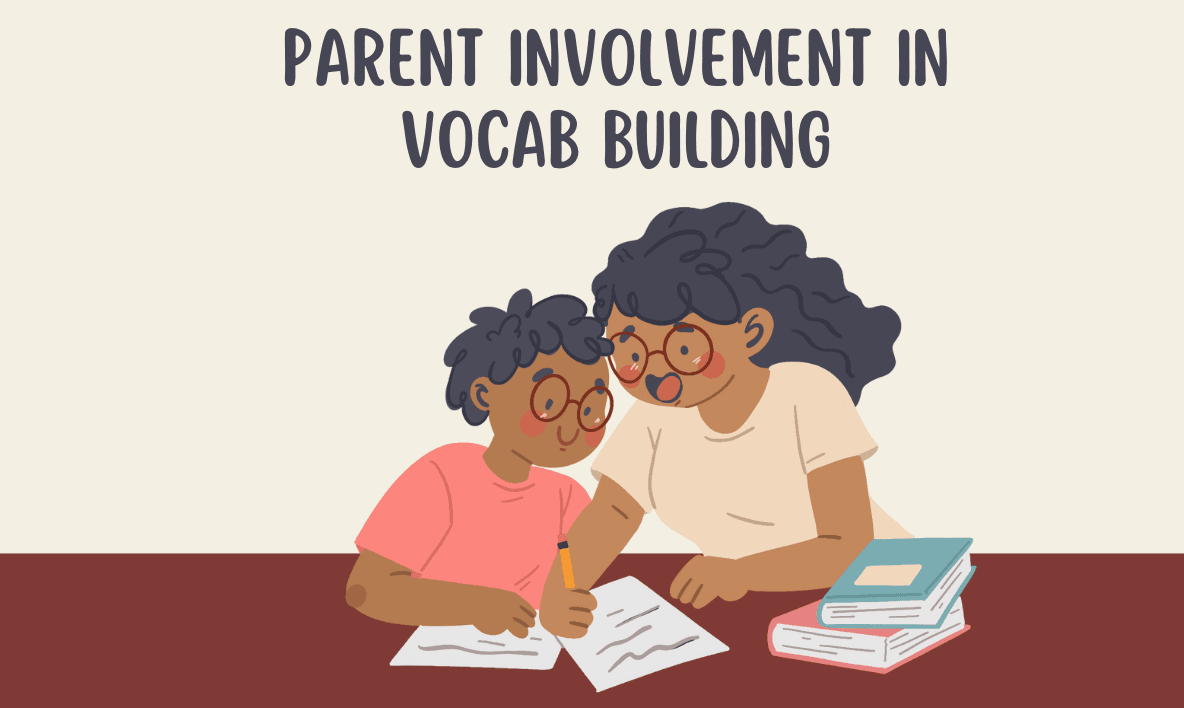Parental involvement plays a crucial role in children’s education, especially in areas like vocabulary building. When parents engage in their child’s learning process, it creates a supportive environment that enhances their understanding and use of language. This article will explore the benefits of parental involvement in vocabulary building, providing practical examples and strategies for both parents and educators.
Whether you’re in the United States or Australia, understanding how to foster vocabulary development at home can lead to better educational outcomes for your children.

Understanding Parental Involvement
What Is Parental Involvement?
Parental involvement refers to the active participation of parents in their child’s educational journey. This can include activities such as helping with homework, attending school events, and engaging in discussions about schoolwork. When it comes to vocabulary building, parents can significantly influence their children’s language development.
The Importance of Vocabulary Building
Vocabulary is foundational for reading comprehension, writing skills, and overall academic success. Children with strong vocabulary skills tend to perform better in school, have higher self-esteem, and communicate more effectively.
Benefits of Parental Involvement in Vocabulary Building
Enhanced Language Skills
When parents actively engage in vocabulary building, children have more opportunities to hear and use new words. This can be achieved through reading together, discussing new concepts, or playing vocabulary games.
- Reading Together: Regular reading sessions expose children to new vocabulary in context, helping them understand and remember new words.
- Discussions: Talking about daily activities and experiences can introduce children to descriptive language and diverse vocabulary.
YouTube Link: Effective reading strategies for parents to build vocabulary.
Increased Motivation and Interest
Keyword Focus: parent engagement, family engagement early childhood
Parental involvement can significantly boost a child’s motivation to learn. When children see their parents interested in their education, they are more likely to value learning and explore new vocabulary.
- Encouragement: Praising efforts and achievements in vocabulary learning can motivate children to engage further.
- Fun Activities: Incorporating vocabulary games or challenges can make learning fun and exciting.
Improved Academic Performance
Keyword Focus: vocabulary building benefits, family engagement education
Children who have involved parents are more likely to excel academically. This correlation can be particularly strong in language arts, where vocabulary knowledge is crucial.
- Homework Support: Parents who help with vocabulary-related assignments can clarify concepts and reinforce learning.
- Test Preparation: When parents assist in preparing for vocabulary tests, it can lead to improved results.
Practical Strategies for Parents
Reading and Discussing Books
Keyword Focus: family engagement examples, parent engagement
Encouraging a love for reading is one of the most effective ways to enhance vocabulary. Parents can:
- Choose Diverse Books: Select books with rich language and varied themes to expose children to new vocabulary.
- Ask Questions: Discuss characters, settings, and events to encourage deeper thinking and language use.
Incorporating Vocabulary Games
Keyword Focus: parent involvement education, vocabulary building benefits
Games can make vocabulary learning enjoyable. Some popular options include:
- Scrabble or Boggle: These classic games challenge players to form words and can help with spelling and vocabulary.
- Word Searches: Create custom word searches using vocabulary words from school.
Everyday Conversations
Keyword Focus: family engagement early childhood, parent engagement
Engaging in meaningful conversations daily can significantly improve vocabulary. Parents can:
- Use New Words: Incorporate new vocabulary into everyday discussions to reinforce learning.
- Encourage Questions: Allow children to ask about unfamiliar words, promoting curiosity and exploration.
The Role of Schools in Supporting Parental Involvement
Creating Partnerships
Keyword Focus: benefits of parental involvement, family engagement education
Schools can foster parental involvement by creating strong partnerships with families. This can include:
- Workshops: Offering workshops on effective strategies for vocabulary building can empower parents.
- Regular Communication: Keeping parents informed about classroom activities and vocabulary focuses helps them engage at home.
Providing Resources
Keyword Focus: vocabulary building benefits, parent engagement
Schools can provide resources such as:
- Reading Lists: Suggest books that can enhance vocabulary for different age groups.
- Online Tools: Recommend websites or apps that facilitate vocabulary learning at home.
YouTube Link: Link to a video demonstrating interactive vocabulary-building activities for parents and children.
Conclusion
Parental involvement is vital for effective vocabulary building in children. By actively participating in their education, parents can enhance their children’s language skills, boost motivation, and improve academic performance. Whether through reading together, playing vocabulary games, or engaging in daily conversations, parents can make a significant impact on their child’s vocabulary development. Schools also play a crucial role in fostering this involvement, providing resources and support to create strong home-school partnerships.
Key Takeaways
- Engaged parents enhance children’s vocabulary through reading, discussion, and fun activities.
- Strong vocabulary skills lead to better academic performance and self-esteem.
- Schools can support parents by offering resources and creating partnerships.
FAQ
Q1: How can I get involved in my child’s vocabulary building?
A1: Read together, engage in discussions about books, and incorporate vocabulary games into your daily routine.
Q2: What are some good vocabulary games for children?
A2: Scrabble, Boggle, and word searches are fun ways to enhance vocabulary.

